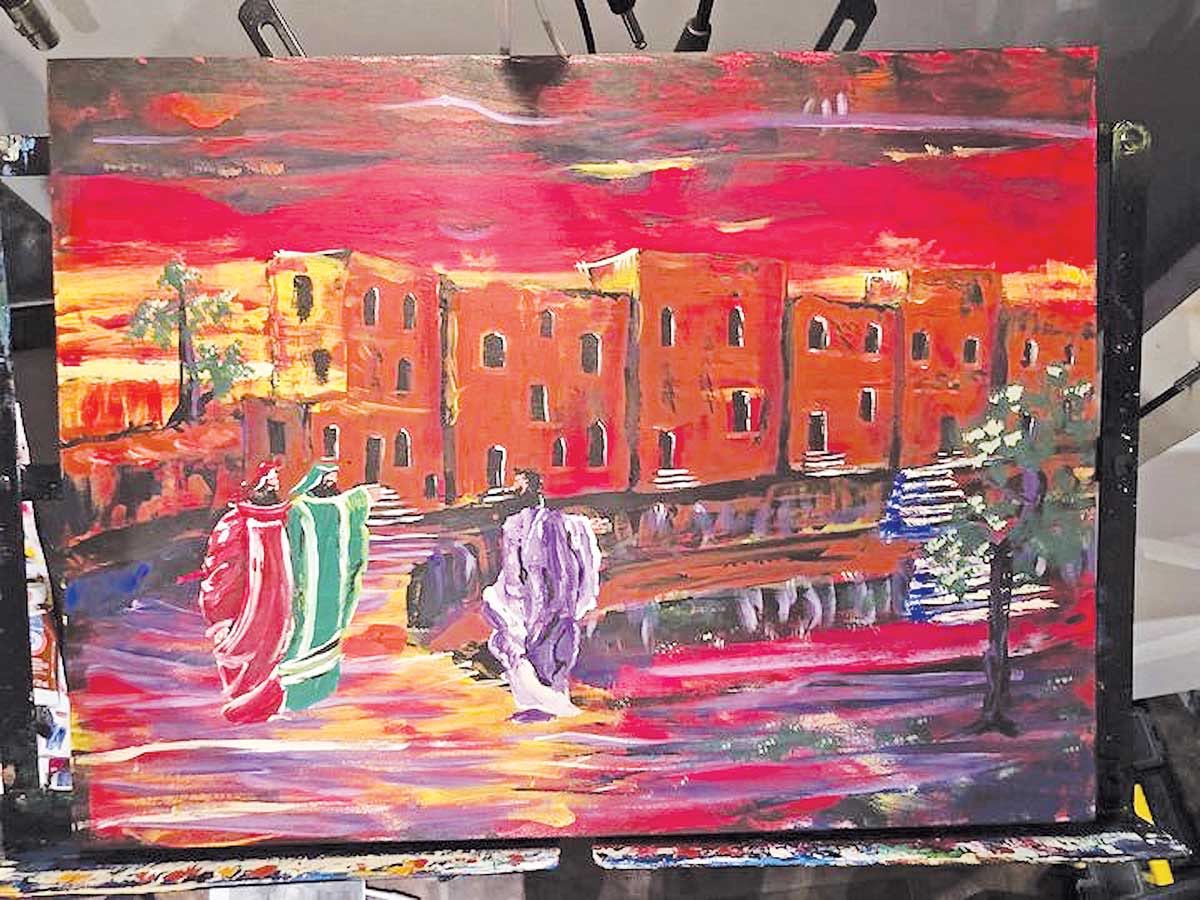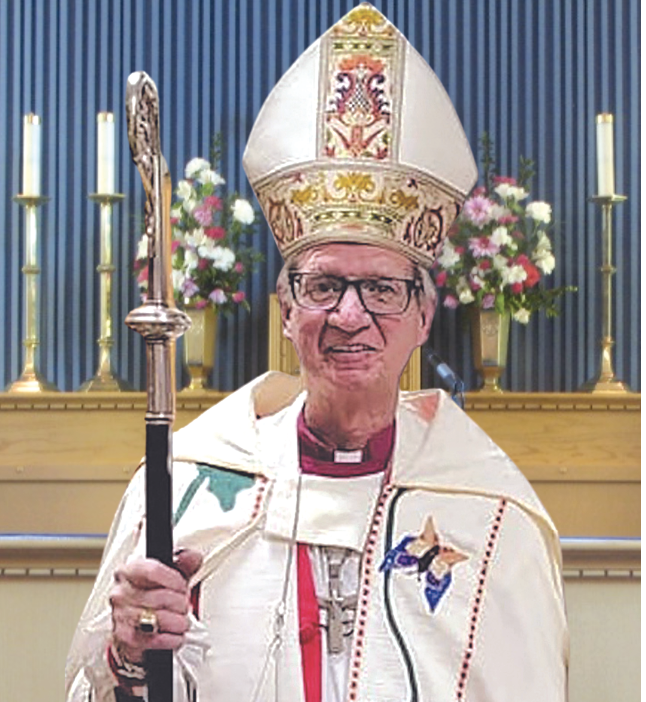I often return to Luke’s story about two disciples traveling to Emmaus after Jesus had died. They met a man along the road and began to walk and talk with him.
After some time, they stopped. They decided to rest together for the night. At the meal they shared, the two disciples observed the way the man took headship, praying, breaking bread, and pouring wine. In the fraction and sharing of everyday elements, they recognized Jesus and his undeniable presence.
I regularly return to this story. I need it every day. I do so by reading it, writing poetry about it, painting images of it, and sometimes by weeping in memory of the narrative’s power while presiding at a Eucharist.
In many ways, it is the singular story that has helped me keep faith over the many years I have been walking the road toward a spiritual Emmaus.
It does not touch everyone in the same way.
Throughout the past year in the midst of our COVID shadows and encounters, I have discovered that my “Missional Question,” that I ask pretty much everyone I chat with in one way or the other, has taken on a new poignancy. The compound question generally asks : “What was your spiritual foundation when you were young, and is there a reasonable spiritual, or a religious foundation, that you stand upon today?” The answer I often hear is a quiet: “Not really.”
It makes me pay attention to everything they say, especially words of love and compassion that may flow from them. I believe God is in that.
When I was a young Christian, I often embraced a sense that some great spiritual happening was eminent. I had given my heart to Jesus, and was convinced that from here on in, all would be well, if I only followed a prescribed path. There were plenty of teachers to help me!
Over the years as a “Saved” Christian, then as an ordained person, I would ask questions out of a sense that I was somehow spiritually empowered to reveal the right path to others whom God “sent to me.”
Now, when I ask my questions, they are rooted in a deepening hope I see emerging within me, that honest answers and sharing of life experiences from others will humble me to be a student, rather than a teacher, of what the Spirit is doing in the world these days. It breaks my heart to hear of struggle, doubt, mistrust and fear; but also there is hope, joy, and peace in knowing that these things are being shared as COVID-19 continues to remind us what is really important.
In our faith communities, when our church people say things like, “I don’t know what is happening to young people today,” I try my best to share what I am learning:
The spirit of Jesus is, even now, walking with each of us, on our own road to Emmaus.
The Spirit of Jesus is trying to reach the world, even though, perhaps especially through, honest people who just can’t fall down on their knees and pray.
I’m someone trying to be like Jesus, in that I truly want people to be their honest selves with me. I try to create an environment that enables a safe place for people to do so when I am gifted with a time and place to walk and talk with another person.
That is not as easy as it sounds when you think about it, because we all have our intellectual, religious, cultural, and personal biases that filters each conversation. As a result, what we consider to be authenticity is also filtered.
I have discovered that I am speaking more and more with people who do express both a desire and struggle to live deep, meaningful lives, without definite spiritual guidelines, or a commitment to institutional religion, or any particular denomination.
Many of these conversations reveal the wonder and intricacy of life and relationships in 2020-2021.
Where is God in all of this?
COVID-19 has been like a magnifying glass. It focuses upon community, religion, and individual, government and corporate priorities. This pandemic has also shown us how many previously common, shared, and accepted reference points have become obscured or invisible. What I assume you know or should respect, may be totally alien to you.
The pandemic is teaching us that although the virus is dangerous, the biggest threat is found in the way humanity has responded, and is going to respond in the future to our own inner woundedness, ignorance, greed, and impatience. Science will take care of the virus, but we need to think deeply about developing new ideals of benevolence, acceptance, solidarity, generosity, and compassion. We must take care of this ourselves.
If you think this is going to be easy, reflect for one moment about how you really felt when you were walking down an aisle in a grocery store and someone was heading toward you, walking against the arrows on the floor. And keep going: think for a moment how you felt when someone called you out or gave you a look of anger or disgust when you were the one walking against the arrows.
I still have a deep feeling that God is walking with us. It is a stirring in my soul that makes me thankful to be a follower of Jesus in this time. Remember, after Jesus was revealed in the breaking of the bread in Emmaus, and had disappeared from sight, the men reflected on how their hearts burned within them while they travelled and conversed with him. They had to stand back, reflect, trust that he was with them in a more profound way, and move forward.
The followers of Jesus learned that the Lord’s living presence goes far beyond his physical body. Jesus was fully revealed in broken bread and in poured wine. A living Christ present for all in that time, and present for us in our time. Jesus is, I believe, faithfully reminding us that His Spirit is still moving among all people. Let’s stand back, reflect on the burning in our own hearts, and then come together, as pilgrims searching for hope, love, security, peace and meaning, and let us do it together.


